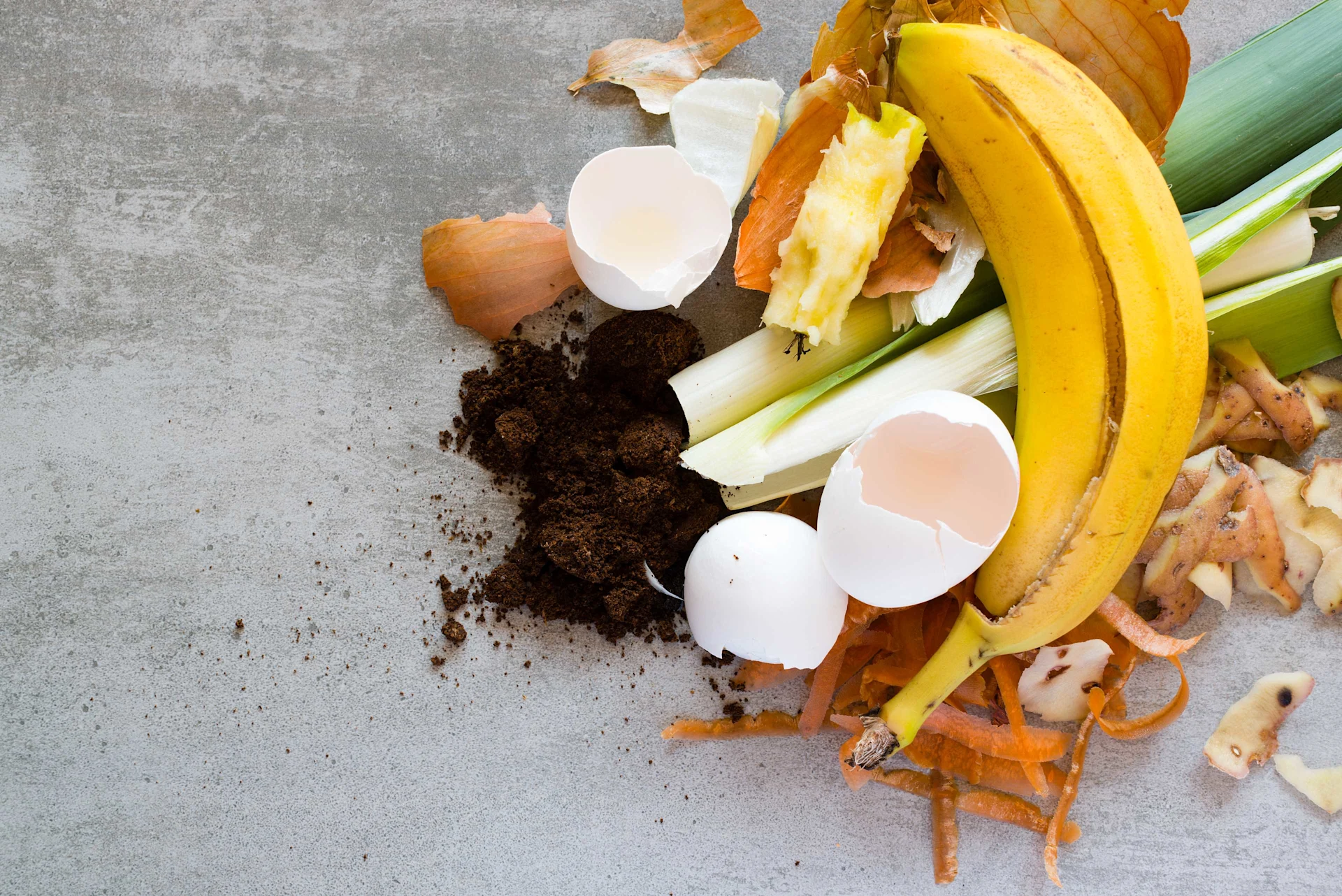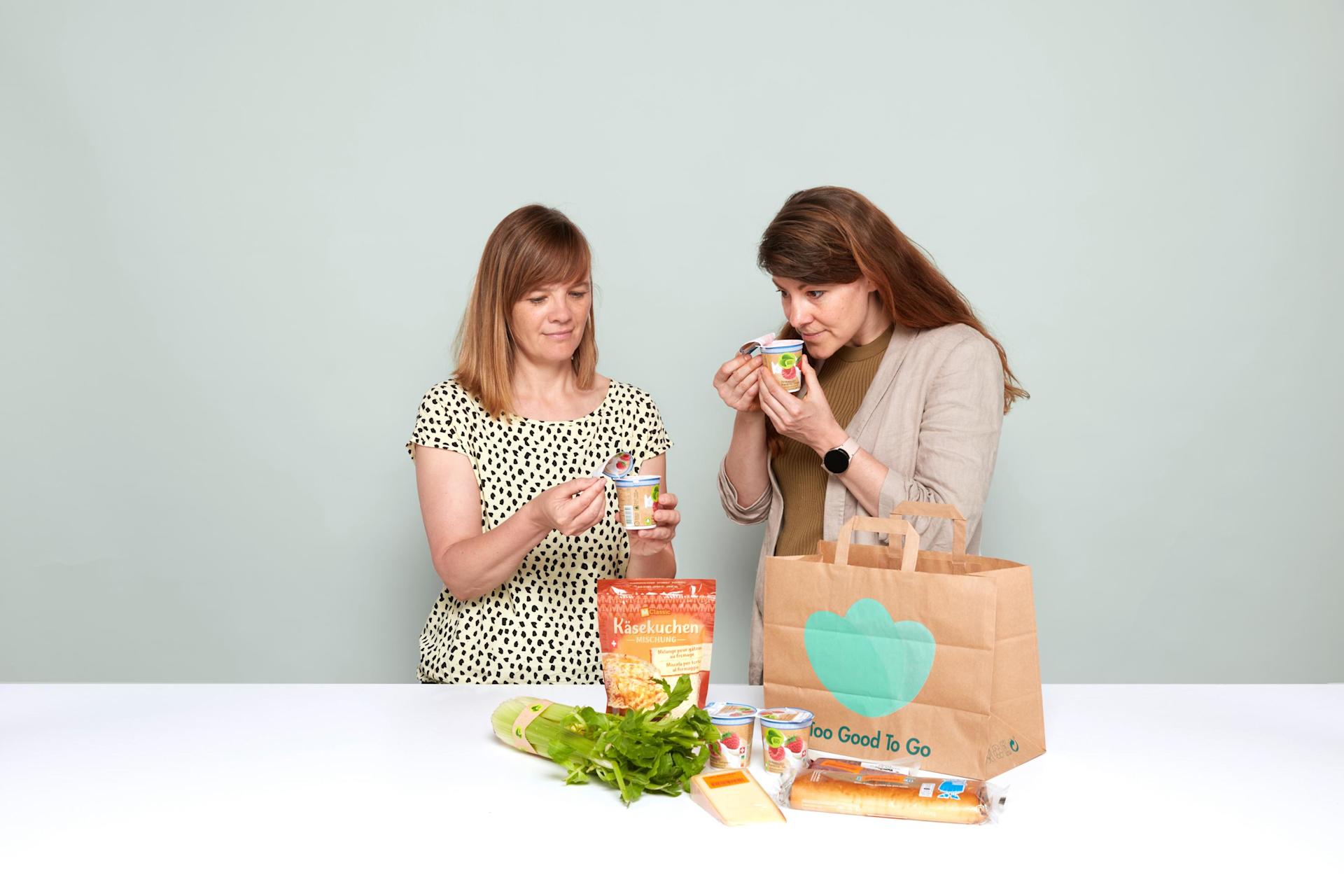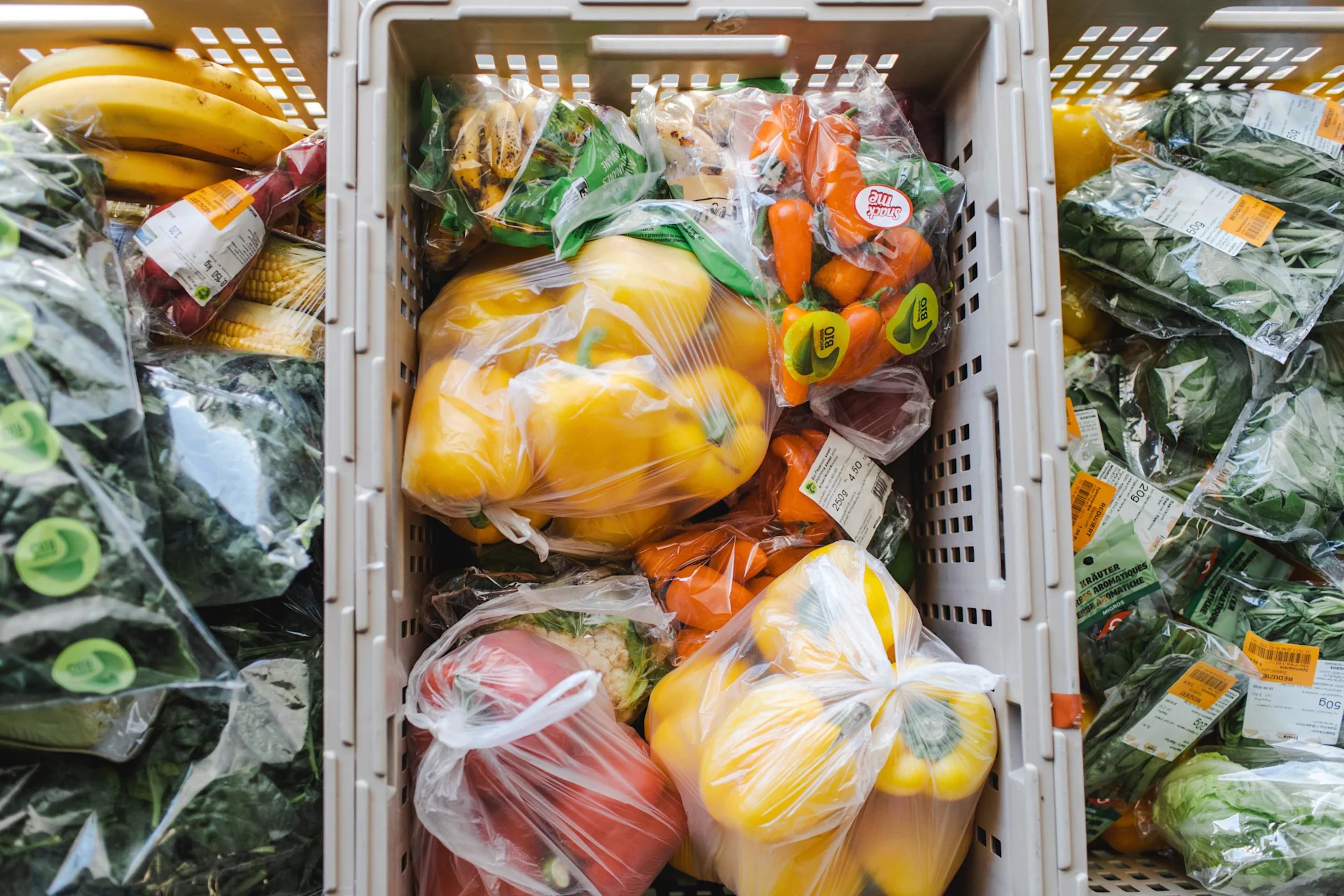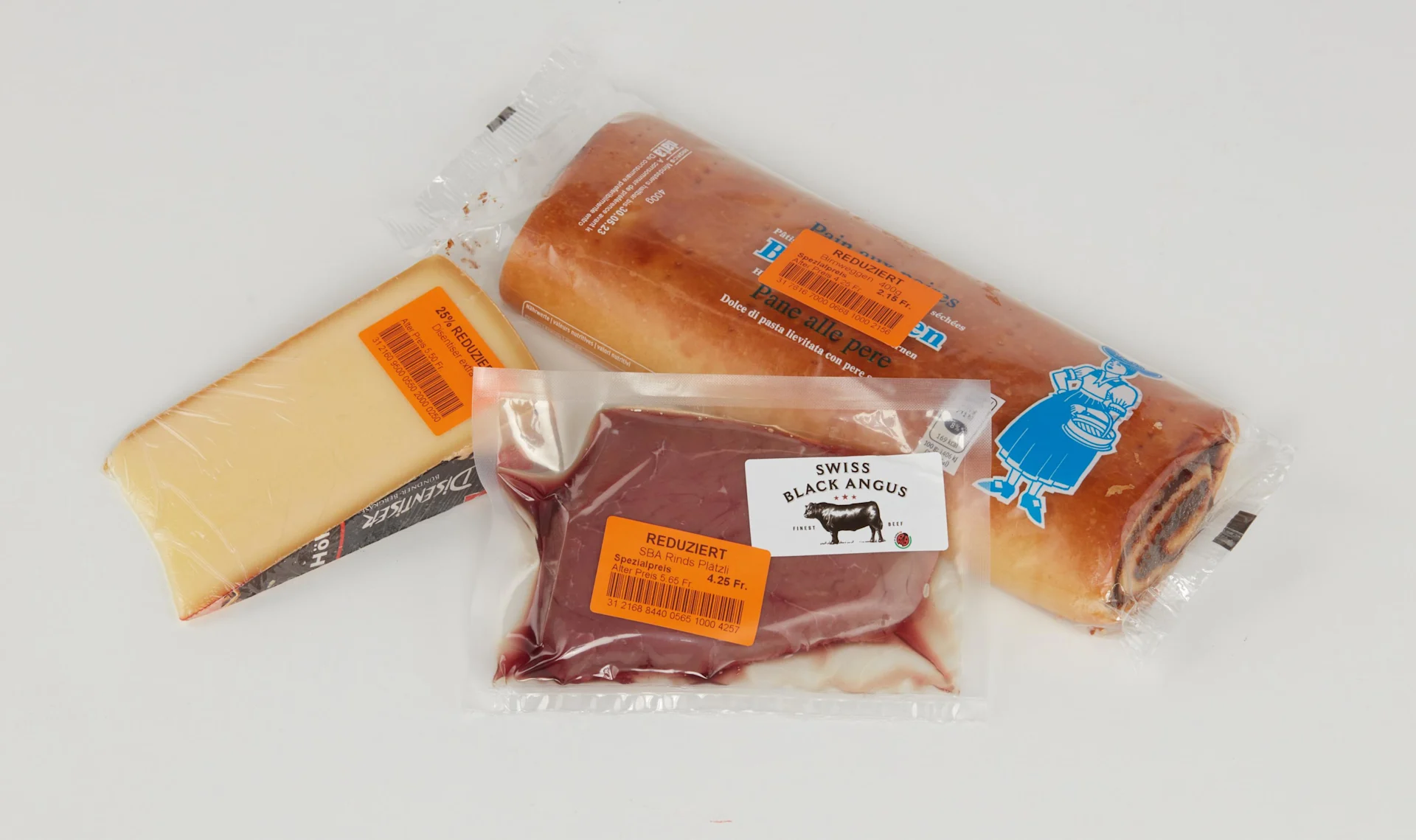
Food waste
What do you know about food waste?
Take part in the food waste quiz and find out how much you already know.
navigation

Less food waste
How can we halve our food waste together by 2030? Our sustainability experts Julia Schaad and Katharina Schenk have the answers.
Julia: Awareness. You have to become aware of how you yourself treat food. It’s about having respect for food and the entire value chain – about valuing the value.
Katharina: It starts with curiosity. How are certain foods produced? What is food waste? How much waste is there? And what can I as a consumer do to reduce it?
Julia: With a small child in the house, not enough at the moment – pasta can end up on the floor and then in the compost. It really pains me to see this. But I am trying to teach my three-year-old daughter to appreciate food. I plan my shopping well and then store it correctly in order to avoid food waste.
Katharina: As a consumer, it helps when I take a look at the fruit and vegetable waste in our food bin. Then it’s easy to see how I can shop better next time so as to ensure that I actually use all the food I buy. I use leftover food in my cooking – my children love a bread salad made using bread that would otherwise be thrown away. But food preferences change from time to time – and you need to keep an eye on this.
Katharina: Yes, as a very large share of the food waste in our Migros Industry is due to the fact that the Swiss have certain food preferences. Take meat consumption, for example, where prime cuts such as fillet are in high demand. But what happens to the rest of the animal? Offal and neck are less in demand – not least because very few people still know how to prepare them. A real challenge that once again shows that Migros cannot solve the food waste problem on its own. The population needs to change its way of thinking.
"Our aim is to halve food waste by 2030."
Julia: No, not yet. But the more people ask for certain things and are prepared to avoid food waste together with us, the more often the branch managers will react and adapt their product ranges. We offer our customers what they want. We would love to sell the whole animal – not least out of respect for the animal.
Katharina: Anyone who wants to can already order offal and slaughter by-products such as chicken necks online – and some branches even stock them. In addition, our meat processor Micarna advocates selling pig’s trotters and chicken feet in restaurants. So the industry is already doing a great deal.
Katharina: In agriculture, in food processing, in retail, in catering, at home. Everywhere, in fact – to varying degrees and for various reasons. Private households have the biggest impact on food waste in Switzerland. In contrast to other retailers, Migros can react to changes in consumer behaviour straight away. Thanks to the good cooperation it enjoys with its own Industry arm, it can also offer products made from leftover food. Others need to negotiate this with their suppliers – but here at Migros, we have leverage. We can take immediate action.

Katharina: The “Industry Agreement on Food Waste” we signed with the federal government in 2022 shows how seriously Migros is taking this. We want to be part of the solution. If Switzerland halves its food waste by 2030 as planned, then we can still reduce the negative impacts of our food system by 10 to 15 per cent.
Julia: Our most important task as a team is to all pursue the same goals for preventing food waste – not only in-house departments, but also external partners. Everyone has to do their bit. The goal is to halve food waste at every level by 2030, compared to 2017 levels.
Julia: We have to get people to buy into the idea of sustainability. The Migros cooperatives have a big part to play in this, as each cooperative has people who deal with the issue of food waste. The same goes for Migros Industry and the Migros Group. The branch managers have a massively important role to play when it comes to food waste – they have to ensure that they always have the right quantities in store. Now we’re all even better connected, ensuring that as little as possible goes to waste along the entire value chain.
Katharina: Staff at the production facilities ensure that everything is set up just right to help avoid waste. And if there is any waste, their thoughts turn to what to do with it. Just like your granny used to do – if there was any dough left after baking the bread, it got used for something else rather than being thrown away.
"We want to be part of the solution."
Katharina: Let’s take the whey produced when making cheese or cream cheese as an example. It’s generally used to make animal feed; however, if we wanted to sell it on, every person in Switzerland would have to drink half a litre of it a day. That doesn’t seem realistic at first glance, yet start-ups are already reusing this whey to make protein shakes, as there is currently demand for these.
Julia: The trend I have noticed in recent years fills me with hope – particularly with respect to the population and at political level. People are looking more closely at what they eat, not least in the context of the climate discussion. This is an important key for unlocking a change in behaviour at all points in the value chain.
Julia: Social values and standards give us the biggest leverage for reducing food waste permanently. We want to encourage our customers to think for themselves. As a company, we get lots enquiries about the issue of food waste, including from the research community. So many things are going in the right direction. As a company, we take on board suggestions, consider them and forge ahead with innovations.
Katharina: The value of food and respect for food need to be taught at an early stage – ideally at home in the family and in schools. Knowledge of how to deal with food is needed. That starts with the use-by and best-before dates – simply use your senses. A sip of sour milk won’t harm anyone. Look at the yoghurt and smell it before throwing the unopened out-of-date pot into the bin. That would considerably reduce food waste at home and is also good for your wallet.

Julia: To minimise spoilage, we are doing a lot of work together with the industry in order to preserve food in the best way possible – using minimum packaging, of course, but packaging that is ideal for the product in question. Innovations such as natural preservatives for fresh produce that prevent mould, for example, play an important part in the fight against food waste.
Katharina: This food is donated to organisations such as Tischlein-deck-dich and others, for example. We would like all food to be actually eaten.
Julia: We work so closely together with the organisations that, even when it comes to distributing the donations, food waste is kept to a minimum. Other secondary channels are also possible, such as selling food to staff at reduced prices or offering it to the catering trade. Food that cannot be distributed in this way is used to make animal feed or biogas.
Katharina: Anyone who buys a cheesecake mix from Migros is automatically doing something to combat food waste, as it contains cheese offcuts. And our packs of bread for toasting now also include the crusts, which was not previously the case. Potato pieces left over from the production of chips or French fries go into our mashed potatoes. We utilise as much as possible in the industry.
Julia: Technology also plays a major role in the fight against food waste – intelligent technology is used for planning in agriculture and production, for example. But in the stores, too, it helps us to keep track and order the right quantities. Many customers will doubtless be familiar with the “Too Good To Go” app. Migros customers have used this app to rescue vast amounts of food – as many as 1.2 million food parcels in total to date.
Julia: It’s a question of perspective. Even the figure of almost 99 per cent in retail is still not enough for us. We want all of the food we produce to go to customers. To this end, we also need to take account of the upstream and downstream points in the value chains, and the spoilage that occurs there. We want customers to enjoy produced food rather than waste it.
Name: Julia Schaad
Occupation: agricultural scientist ETH
Position at Migros: sustainability, ecology and sustainability label specialist
Joined Migros: January 2019
Name: Katharina Schenk
Occupation: sustainability project leader
Position at Migros Industry: sustainability project leader at the Sustainability Center of Excellence
Joined Migros Industry: May 2020
With simple tips, you too can reduce food waste. Join now and let’s save food together.